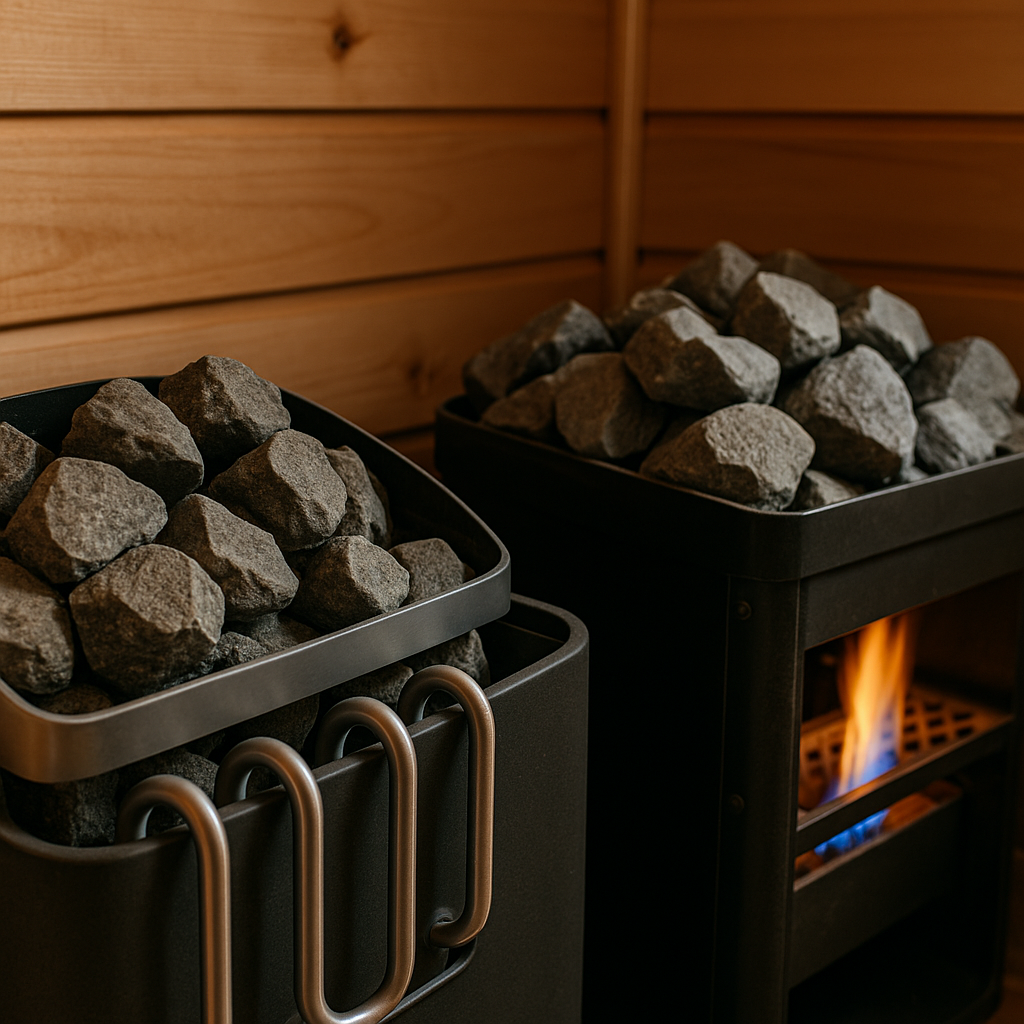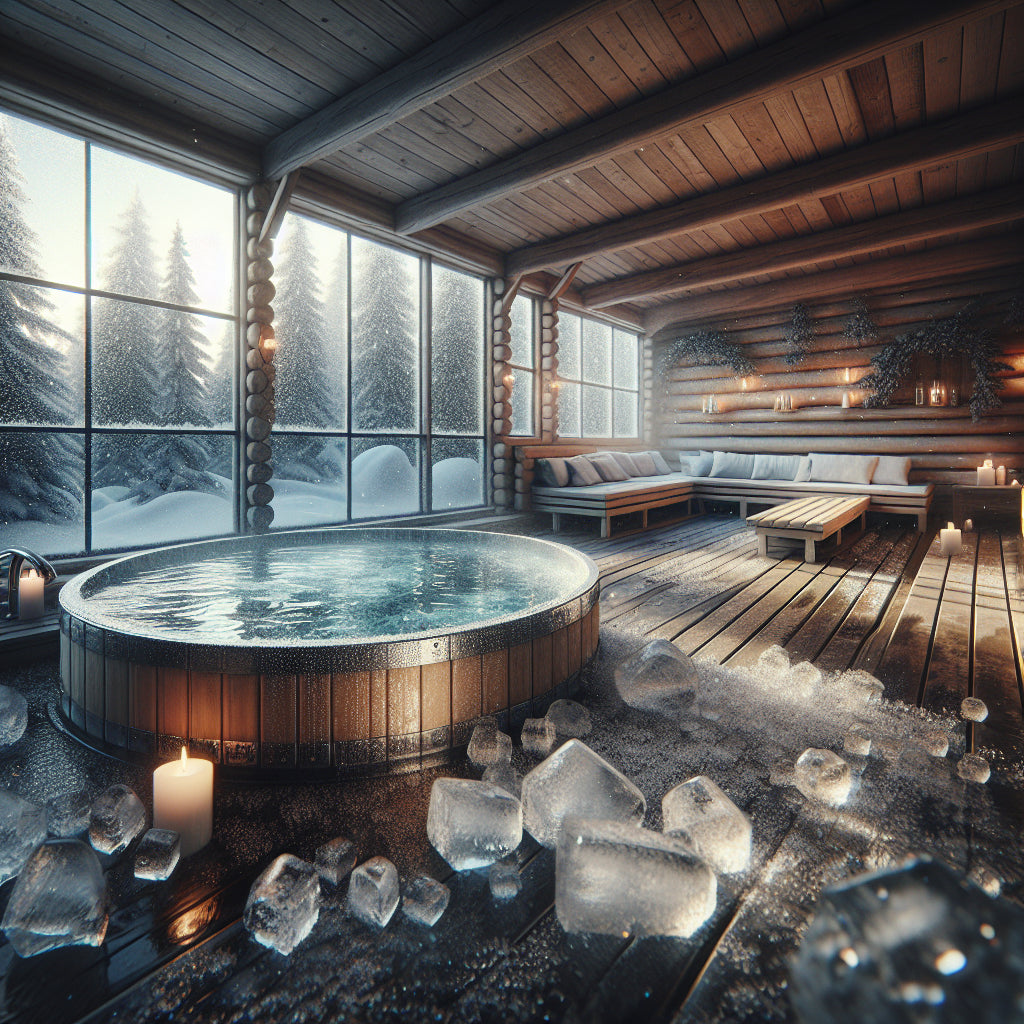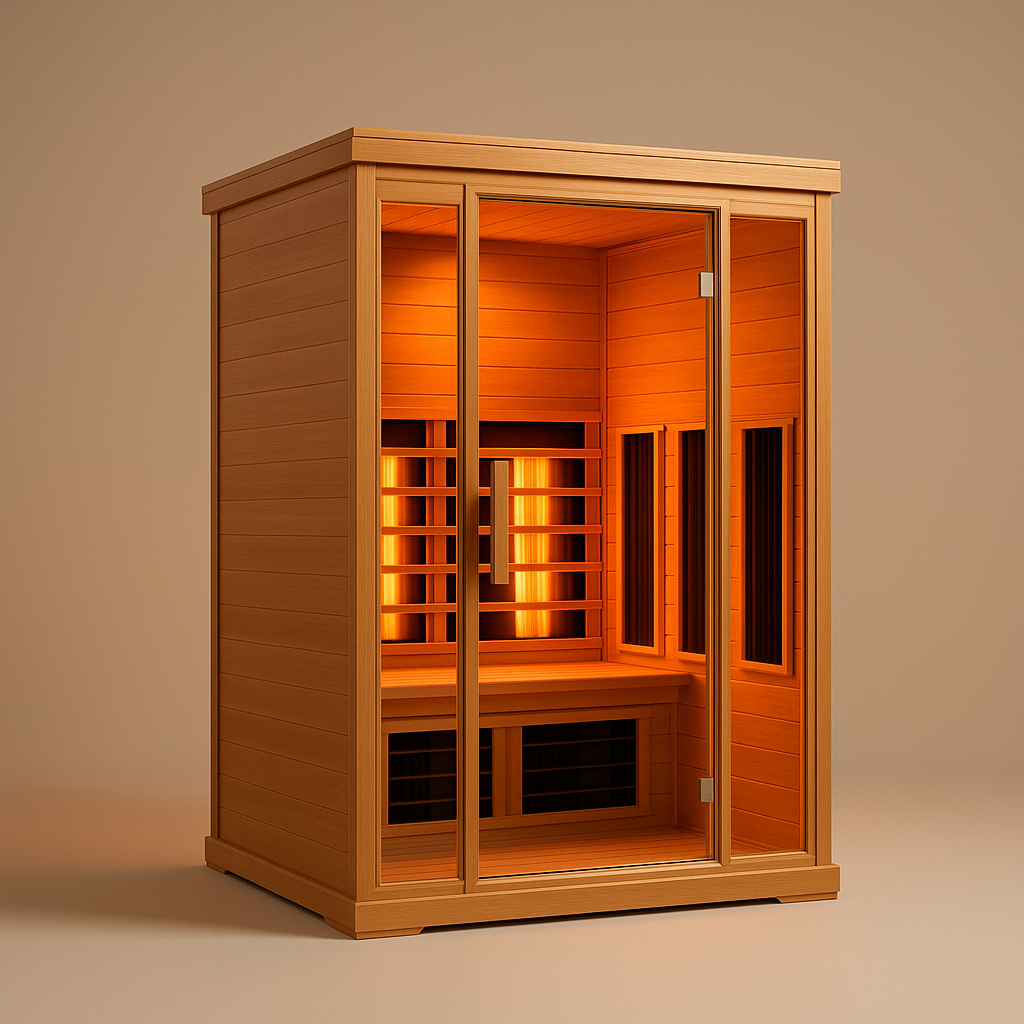Choosing the Best Sauna Heater: Electric vs. Gas for Your Perfect Sauna Experience
When considering adding a sauna to your home, one of the most important decisions you’ll make is selecting the right sauna heater. The heater you choose directly affects the efficiency, comfort, cost, and overall enjoyment of your sauna. Whether you prefer the steady, reliable warmth of an electric sauna heater or the robust, traditional intensity of a gas sauna heater, understanding the pros and cons of each option is crucial for making an informed decision.
In this comprehensive guide, we’ll break down everything you need to know about electric and gas sauna heaters, how they work, their key benefits and considerations, and who each one is best suited for. You’ll walk away with the confidence to choose the perfect sauna heater for your unique space and wellness goals.

Why the Right Sauna Heater Matters
The heater is the heart of the sauna—it’s what creates the therapeutic heat that delivers a host of wellness benefits:
- Detoxification through induced sweating
- Relief for sore muscles and joint stiffness
- Improved blood circulation
- Stress reduction and mental clarity
- Enhanced immune function and relaxation
However, not all sauna heaters are created equal. The two most common types for home and commercial use are electric and gas-powered heaters. Each type creates heat differently, comes with distinct installation requirements, and caters to different lifestyle and design needs.
Electric Sauna Heaters: Convenient, Clean, and Compact
Electric sauna heaters are the most popular choice for residential saunas due to their convenience, clean energy source, and low maintenance. These heaters operate similarly to electric ovens: electricity passes through coils or elements, which then heat a bed of sauna stones. The stones radiate heat throughout the sauna.
How Electric Sauna Heaters Work
- Heating elements convert electrical energy into heat.
- Stones absorb and retain heat, dispersing it evenly in the space.
- Many models offer digital controls for temperature and timers, allowing users to preheat the sauna or maintain specific heat levels.
- No combustion, gas lines, or ventilation systems are needed.
Key Benefits of Electric Sauna Heaters
- ✅ Easy Installation: Can be installed in most homes without requiring major modifications.
- ✅ Precision Controls: Digital and programmable options let you set timers, preheat cycles, and exact temperatures.
- ✅ Low Maintenance: No ash cleanup or fuel storage required.
- ✅ Silent Operation: Operates quietly compared to gas burners.
- ✅ Compact Design: Ideal for smaller saunas or limited indoor space.
- ✅ Eco-Friendly: Especially when powered by renewable energy sources like solar or hydroelectric power.
Ideal For:
- Small to medium-sized saunas
- Indoor installations
- Urban homes or apartments
- First-time sauna users
Gas Sauna Heaters: Power, Performance, and Traditional Appeal
Gas sauna heaters use either natural gas or propane to generate heat. These models are especially popular for large or outdoor saunas where high heat and fast performance are priorities.
How Gas Sauna Heaters Work
- Burners ignite gas to generate intense heat.
- Like electric heaters, the heat is absorbed by stones and radiated throughout the sauna.
- Requires proper ventilation or chimney systems to safely remove combustion gases.
- Often used in commercial setups or large, high-use home saunas.
Key Benefits of Gas Sauna Heaters
- 🔥 High Heat Output: Heats quickly and maintains very high temperatures.
- 🔥 Fuel-Efficient for Large Spaces: Ideal for heating saunas used by multiple people or for extended periods.
- 🔥 Cost-Effective Over Time: Gas is often cheaper than electricity in areas with high electric rates.
- 🔥 Great for Outdoor Saunas: Doesn’t rely on indoor electric wiring or outlets.
- 🔥 Long Lifespan: Gas heaters tend to last a long time with proper maintenance.
Ideal For:
- Larger or commercial saunas
- Outdoor sauna setups
- Rural areas with easy access to propane or natural gas
- Sauna users seeking higher heat intensity and a more traditional feel
Comparing Electric vs Gas Sauna Heaters
To help you clearly see the differences, here’s a side-by-side comparison:
| Feature | Electric Sauna Heater | Gas Sauna Heater |
|---|---|---|
| Heating Time | Fast, consistent heating | Very fast, intense heating |
| Installation | Simple, plug-in or hardwired | Requires gas line, ventilation, and pro install |
| Controls | Digital and programmable | Often manual, limited control |
| Noise Level | Silent | Can produce burner or flame sound |
| Maintenance | Minimal | Occasional vent and burner maintenance |
| Environmental Impact | Cleaner if powered by green energy | Burns fossil fuel (gas or propane) |
| Best For | Indoor, residential use | Large, outdoor, or commercial use |
| Cost to Run | Moderate (varies by electricity cost) | Lower per-use cost in high-volume saunas |
| Safety | No combustion or fumes | Requires proper exhaust systems |
Frequently Asked Questions
1. Which heater lasts longer—electric or gas?
Both can last 10–20 years with proper care. Gas heaters may require more frequent maintenance due to fuel combustion, while electric heaters have fewer moving parts and are often easier to troubleshoot.
2. Are electric heaters safe for daily use?
Yes, they are extremely safe when installed properly and used according to manufacturer guidelines. Many include safety shutoff features and timers.
3. Can I convert my electric sauna to gas later?
It’s possible, but it involves significant retrofitting—especially installing ventilation and a gas line. It's often more cost-effective to choose the right system from the start.
Real-World Use Case Scenarios
Indoor Urban Apartment Sauna (Electric)
Maria lives in a small condo in the city. Her 2-person indoor sauna fits neatly into her guest bathroom. She uses an electric heater with a digital timer, allowing her to preheat the sauna while she finishes work. The compact size and low noise level make it ideal for apartment living.
Outdoor Family Sauna Retreat (Gas)
The Johnson family owns a lake house with a large outdoor sauna that accommodates 6 people. They opted for a gas sauna heater that connects to a propane tank, allowing rapid heating even during cold winter nights. The intense heat and quick warmup suit their frequent group sauna sessions.
Environmental and Energy Efficiency Considerations
- Electric heaters powered by renewable energy are a greener option overall.
- Gas heaters, while efficient, release carbon emissions and require more robust safety measures.
- Some electric models now offer eco-modes to reduce energy use while maintaining comfort.
- Consider your region’s utility rates: In some states or provinces, gas is cheaper per unit of energy, while in others, electricity is the better long-term deal.
Tips for Choosing the Right Heater
-
Measure Your Sauna Space:
-
Smaller saunas (1–3 people): Electric heaters are usually sufficient.
-
Larger saunas (4+ people): Gas heaters provide the high heat required.
-
-
Decide Between Indoor vs Outdoor Use:
-
Indoors: Electric is safer and easier to install.
-
Outdoors: Gas heaters offer better performance without electrical concerns.
-
-
Consider Ventilation Needs:
-
Electric heaters: No venting required.
-
Gas heaters: Require flue, chimney, or exhaust.
-
-
Budget for Installation:
-
Electric: Often DIY-friendly or lower-cost installs.
-
Gas: Typically requires a licensed installer.
-
-
Think About Your Lifestyle:
-
Need flexibility, automation, and quiet? Choose electric.
-
Prefer traditional feel and quick, intense heat? Choose gas.
-
Bonus: Hybrid Sauna Heater Options
If you're having trouble choosing between electric and gas, some manufacturers offer hybrid systems or dual-function sauna setups. These may combine an electric heater with wood-burning or gas features, allowing you to switch based on your needs.
Final Thoughts: What’s the Best Sauna Heater for You?
Choosing between an electric and gas sauna heater depends on your space, lifestyle, and preferences. Electric heaters offer simplicity, safety, and digital convenience—perfect for smaller, indoor saunas. Gas heaters, on the other hand, deliver raw power and are ideal for large or outdoor sauna spaces.
No matter which type you choose, investing in the right sauna heater ensures:
- Greater wellness benefits
- Long-term energy efficiency
- A more enjoyable and consistent sauna routine
Ready to Upgrade Your Wellness Space?
🧖♂️ Explore our full range of high-performance Electric Sauna Heaters and Gas Sauna Heaters today. Whether you’re building your first at-home retreat or upgrading a luxury outdoor oasis, we’ll help you find the perfect heater to bring the heat—safely and efficiently.
🔍 Additional Resources
Want to dive deeper into the science and technical comparisons of sauna heaters? Here are expert-backed resources to explore:
-
Health Benefits of Sauna Use Backed by Science – Mayo Clinic
Clinical insights on the therapeutic value of sauna use, including detox, circulation, and stress relief. -
A Review of Sauna Bathing and Health Benefits – JAMA Network
A long-term study showing how regular sauna use can reduce cardiovascular risks and support overall health.







Leave a comment
This site is protected by hCaptcha and the hCaptcha Privacy Policy and Terms of Service apply.